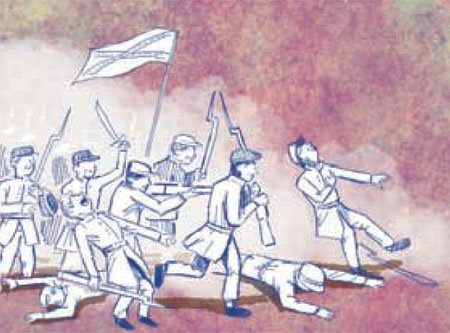Lesson of 1 percent from the Battle of Gettysburg
Lesson of 1 percent from the Battle of Gettysburg
Posted May. 28, 2019 07:39,
Updated May. 28, 2019 07:39

During the early years of the Civil War in the United States, the Southern army won in streaks. The records were in favor of the South, but the aggressions were mostly initiated from the North, not the South. Robert E. Lee, the commander of the Confederate States Army, knew that the war could not be won only with defense and thought up a bold strategy. The plan was to make a bypass to Baltimore, the Northwest side of Pennsylvania with his main troops, to attack Washington from the Northern part.
Caught off guard, the North mobilized every military resource. The point of conflict was Gettysburg. The Battle of Gettysburg went on for three days. The battle of the last day spearheaded by George Pickett known as “Pickett’s Charge” was the most epic drama of all. Commander Lee mobilized three divisions and ordered a charge across the field to Cemetery Ridge. During the battle, half of his men were either killed or injured. Whether it was heroic or just reckless still is a top of debate.
I’ve been to Gettysburg once. Overlooking the field from the starting point of the Southern army, I thought any attempt for an attack there made little sense. Why did such a genius commander make such a reckless decision? Was it the impatience accompanied by wartime pressure that clouded the great leader’s judgment?
When I reached the final line of defense for the Northern army, however, the scene changed my mind. The Southern army could have won, indeed. They had reached the point of 99 percentages to win the battle. But in such a desperate struggle, the last one percent remains a realm that human control cannot reach. There was one battlefield, but it had two very different scenarios of war.
Conflicts and confusion are spreading in our society because standing in the other’s shoes is considered as betrayal of faith. The battlefield of Gettysburg teaches us that we should consider two opposite perspectives to render a fair assessment. The future of our society will be bleak if we continue to fail to lose our absurdity to believe in absurdity as truth.







